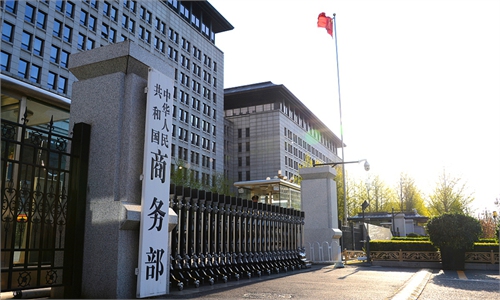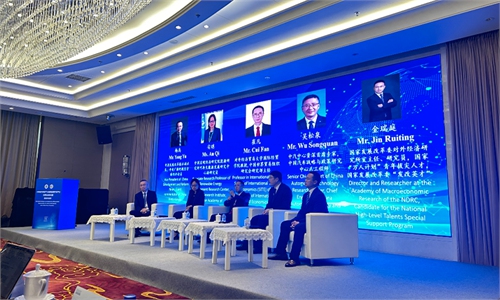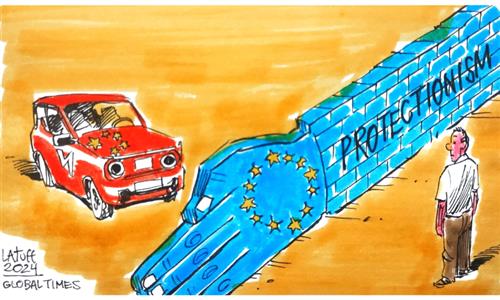Canada urged not to impose high tariffs on Chinese EVs, avoid stirring up trade disputes

Photo: NEV
The Canadian government should refrain from stirring up trade tensions with China over electric vehicles (EVs), Chinese analysts said, as Ottawa released a document on Tuesday as part of its formal consultations which might lead to tariffs being imposed on Chinese EVs.
The Canadian government has published options it will consider for deterring Chinese-made EVs from "unfairly" accessing the Canadian market, including imposing tariffs on imports and blocking Chinese investment in Canadian factories as it launched a 30-day consultation from Tuesday, according to a government statement.
The consultation papers claimed that Canada's EV industry is "at risk of being undermined by the significant recent increase in exports of Chinese EVs to Canada," enabled by "unfair support through China's use of a broad range of non-market policies and practices."
It highlighted Chinese "subsidization, including the supply chains of necessary components, labor and environmental issues" and "measures to artificially lower production costs, which are leading to significant overcapacity in Chinese EV production."
Criticizing the document as being full of unsubstantiated claims and false statements, and essentially being a copybook of US policies, Chinese analysts warned Ottawa not to disrupt trade ties with China which may undermine the prospects of bilateral trade and economic cooperation and lead to a lose-lose situation.
"China and Canada have no disagreement in jointly tackling climate change with the latest technologies and new means of transportation, and it is in the interests of the two countries to actively engage in cooperation wherever possible and seek win-win results," Lü Xiang, a research fellow from the Chinese Academy of Social Sciences, told the Global Times on Wednesday.
However, if the Canadian government, under the influence of the US, obstinately chooses to complicate matters and stir up a trade dispute, it risks resulting in a lose-lose situation, Lü said, adding that the suggested curbs on Chinese investment are of a discriminatory nature.
China and Canada face no competition in the EV sector as Canada has no significant EV brands and that Chinese companies would welcome cooperation, should some Canadian companies participate in the global EV industrial and supply chain in a competitive manner, Lü noted.
As Ottawa's document offers no clue on what kind of tariff rates it intends to impose but rather stated that it is seeking public input on the government proposal, Chinese analysts said at the current stage that the Canadian government seems to be testing the water before making any decisions out of fears that a rash decision may lead to widespread public opposition.
Ottawa's move followed a US decision in May to nearly quadruple tariffs on Chinese-manufactured EVs, up to a final rate of 102.5 percent. The EU plans to announce its tariff policy on Chinese EVs this week, amid strong opposition from some EU countries and industries.
Chinese observers noted that Canada should value the recovery in bilateral trade and economic cooperation, which has fallen to the ice point following the detention of Huawei executive Meng Wanzhou by Canadian authorities more than five years ago.
In the first five months of 2024, trade volume between the two countries grew by 9.7 percent, reaching 271.17 billion yuan ($37.28 billion) with Canada's exports to China growing 14.4 percent year-on-year, China's customs data showed.




